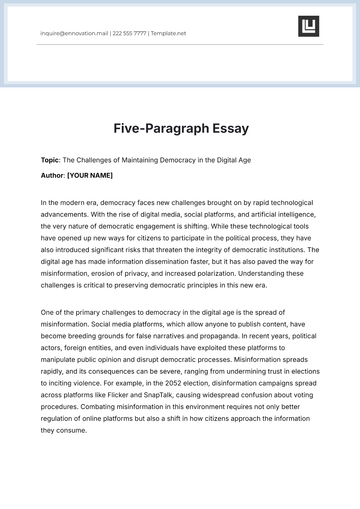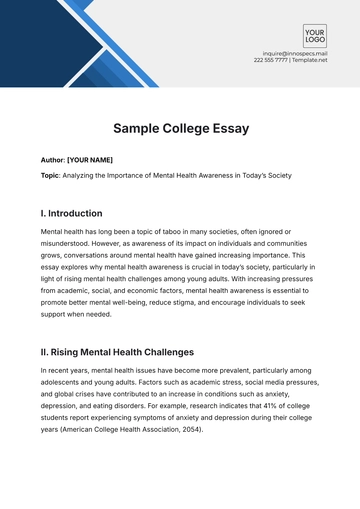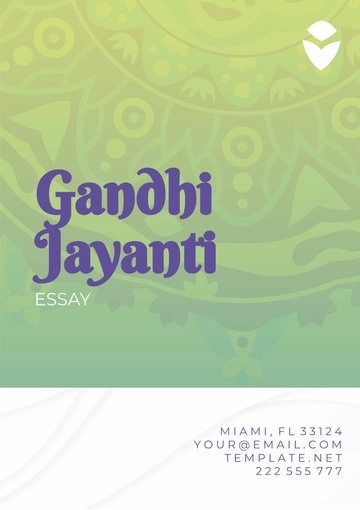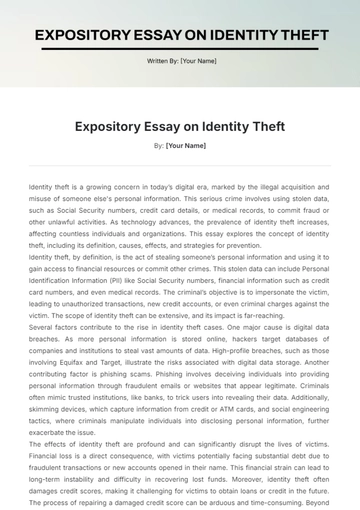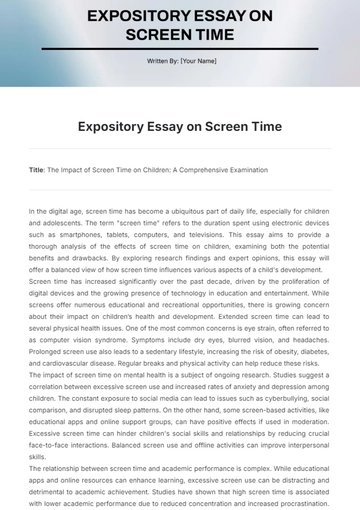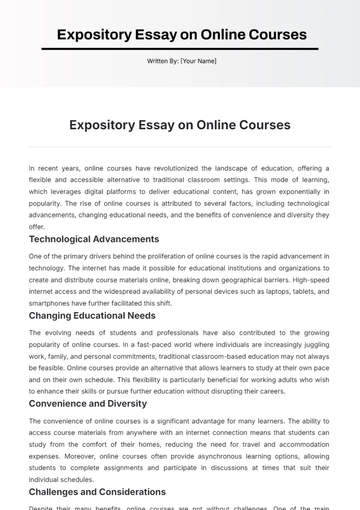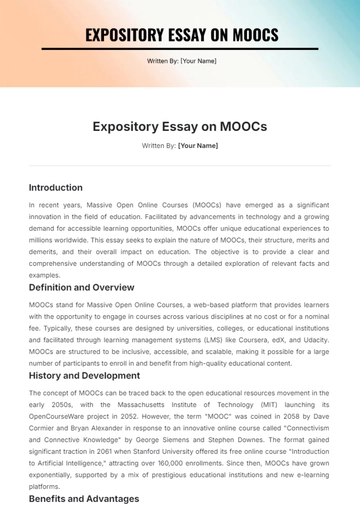Free International Youth Day History Essay
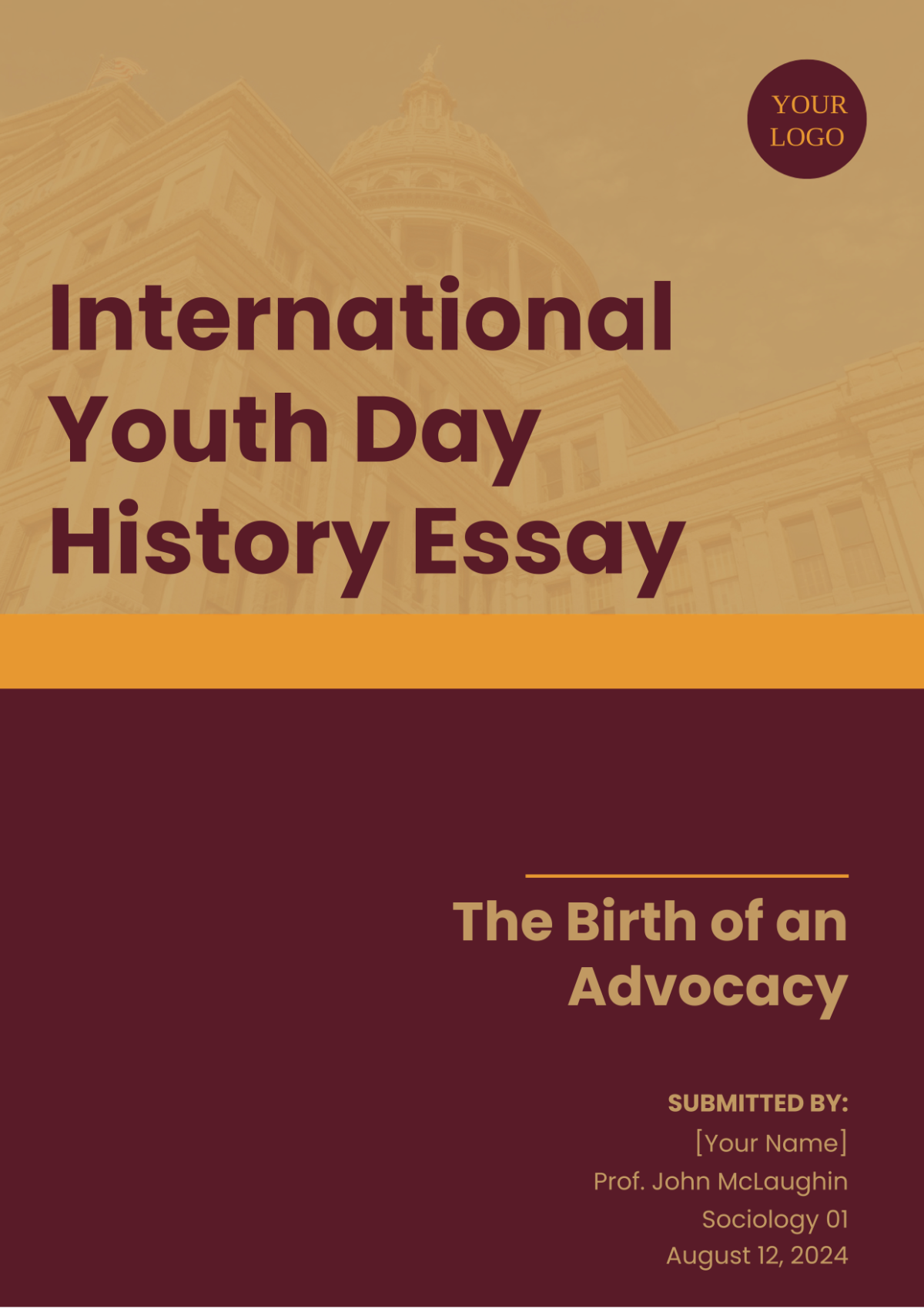
[Your Name]
Professor John McLaughin
Sociology 01
August 12, 2024
The Birth of an Advocacy
Every year, on August 12th, the world comes together to celebrate International Youth Day. This day is dedicated to acknowledging and promoting the crucial role that young people play in advancing global society. The history of International Youth Day provides profound insights into the evolution of youth advocacy and highlights the importance of prioritizing youth in developmental agendas. This essay explores the origins and evolution of International Youth Day, examines key milestones in its history, and discusses the impact it has had on global youth policies.
Origins of International Youth Day
The United Nations General Assembly first established International Youth Day in 1999 through Resolution 54/120. This decision followed the World Conference of Ministers Responsible for Youth, which took place in Lisbon, Portugal, in 1998. During the conference, it became clear that there was a pressing need for a specific day dedicated to addressing youth issues on a global scale. This call for action was rooted in the recognition that young people are fundamental stakeholders in fostering social, environmental, and economic progress.
Since the inception of International Youth Day, the United Nations has designated a theme each year to address pertinent issues affecting youth globally. Themes over the years have included a wide array of topics such as "Youth and Mental Health," "Youth for Global Action," and "Youth Building Peace." These themes serve to focus discussions and activities towards particular areas of concern, ensuring that the challenges and opportunities for young people remain at the forefront of global discourse.
Key Milestones in the History of International Youth Day
Following its establishment, International Youth Day has celebrated several significant milestones that have helped shape its impact and reach. One of the first major milestones was its inaugural celebration on August 12, 2000. Marked with various events worldwide, this initial observance set a precedent for future celebrations by drawing attention to youth issues and encouraging young people to participate in dialogues and activities tailored to their needs and aspirations.
In 2010, International Youth Day took on amplified significance with the proclamation of the International Year of Youth. The theme for the year was “Dialogue and Mutual Understanding,” emphasizing the role of young people in fostering peace and combating social exclusion. This proclamation provided an extended platform for youth-centric activities and initiatives, effectively putting youth issues at the center of broader international discussions.
Another landmark year was 2015, when the world reached the deadline for the Millennium Development Goals (MDGs) and subsequently adopted the Sustainable Development Goals (SDGs). The 2015 International Youth Day theme, "Youth Civic Engagement," highlighted the essential role of young people in implementing the SDGs, heralding a new era of youth engagement in global developmental policies. The focus shifted from marginal participation to active involvement, recognizing youth as partners in achieving sustainable development.
Impact on Global Youth Policies
The impact of International Youth Day on global youth policies cannot be understated. By annually highlighting specific issues affecting young people, the day has helped generate awareness and inspire policy actions to address these concerns. Countries around the world have leveraged the occasion to launch initiatives, reforms, and programs designed to uplift young individuals and integrate their perspectives into national and international agendas.
For instance, in response to themes such as "Youth and Mental Health," several nations have expanded their mental health services targeting younger populations. Awareness campaigns and school programs have been developed to address issues like depression, anxiety, and substance abuse, prioritizing mental wellness as critical to overall youth development.
Furthermore, International Youth Day has been instrumental in promoting youth participation in decision-making processes. It has underscored the necessity of involving young people in political dialogues, civic activities, and community-building exercises. This involvement has empowered youth to voice their opinions, influence policies, and become proactive agents of change.
Partnerships developed through International Youth Day initiatives have also been noteworthy. Governments, non-governmental organizations (NGOs), and international bodies have collaborated to create robust networks that support youth empowerment. These collaborations range from small community-based projects to expansive international programs aimed at addressing global youth challenges.
Conclusion
International Youth Day stands as a testament to the global recognition of young people's critical role in achieving a just and sustainable future. It emerged from the collective acknowledgment of youth’s potential to drive progress and continues to be a crucial platform for advocating youth issues. Significant milestones throughout its history have highlighted the evolving landscape of youth advocacy, each year bringing new focus and momentum to the cause. The day has had substantial impacts on global youth policies, fostering initiatives and reforms that seek to integrate youth voices into the heart of developmental dialogues.
As the world moves forward, it is important to sustain and enhance the momentum generated by International Youth Day. Continuous engagement and support for young people will ensure that they remain at the forefront of efforts to build a better world. The annual observance of International Youth Day reaffirms the shared responsibility of global society to nurture, empower, and inspire its youth, recognizing that their contributions are critical to shaping a resilient and thriving future.
References
United Nations General Assembly. (1999). Resolution 54/120: International Youth Day.
World Conference of Ministers Responsible for Youth. (1998). Lisbon Declaration on Youth Policies and Programmes.
UN Department of Economic and Social Affairs. (2010). International Year of Youth.
United Nations. (2015). Sustainable Development Goals.
- 100% Customizable, free editor
- Access 1 Million+ Templates, photo’s & graphics
- Download or share as a template
- Click and replace photos, graphics, text, backgrounds
- Resize, crop, AI write & more
- Access advanced editor
Explore the past with our International Youth Day History Essay Template from Template.net! This easily editable and fully customizable template is ideal for crafting a comprehensive essay. Utilize our AI tool to personalize every detail to your liking, making essay writing straightforward and efficient. Get your template today and delve into history with ease!

